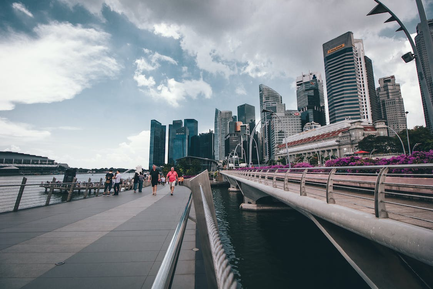
Apply to a foreign university with confidence
- Properly fulfilled documents
- Perfect motivation letter
- Support from a personal mentor
- Offers from several universities
Full information about study in Korea, universities, programs, admission requirements, fees.
Free consultation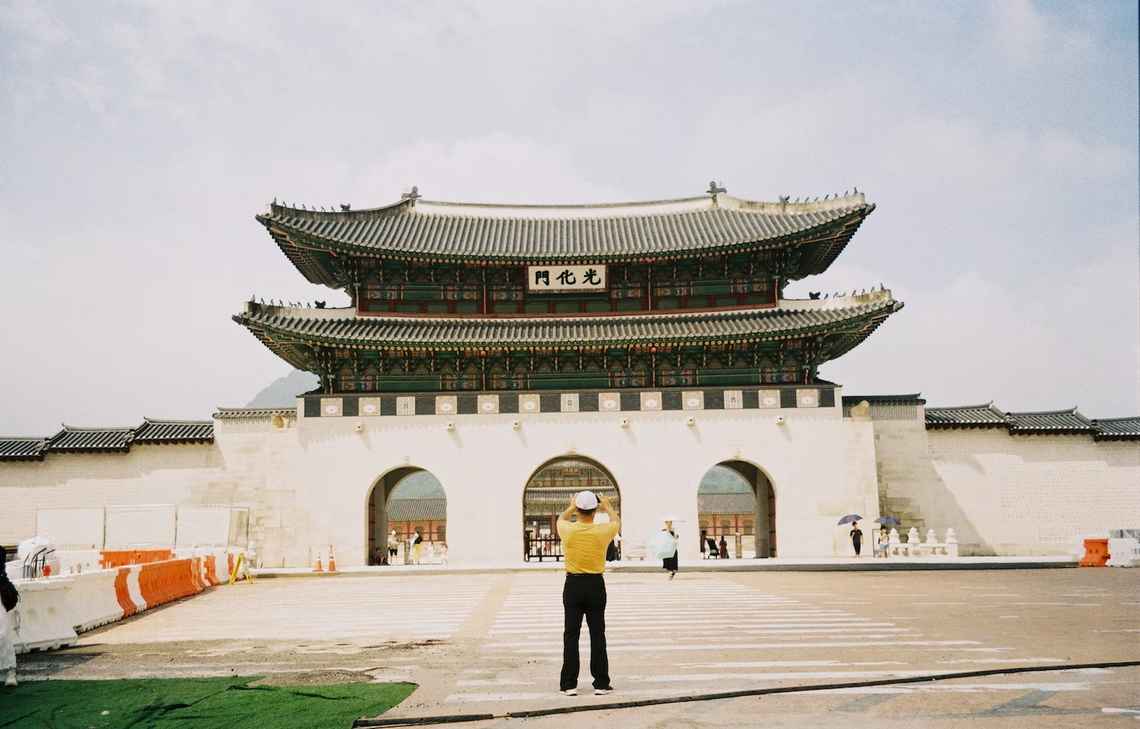
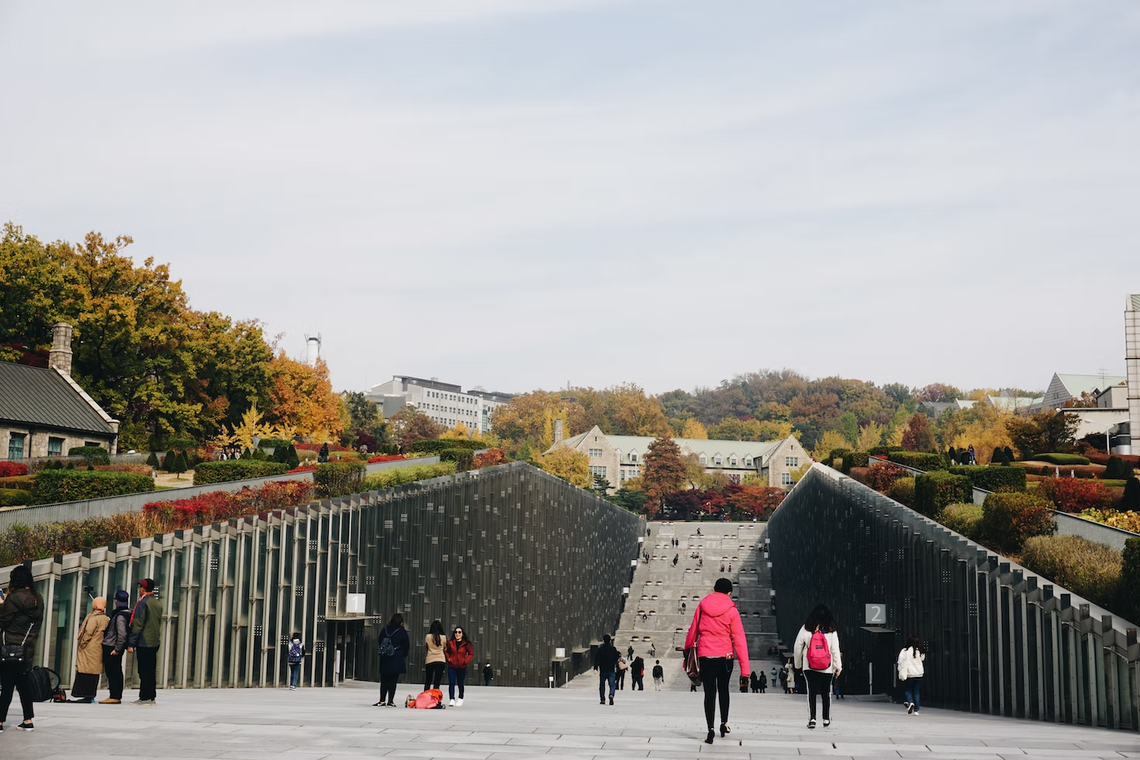
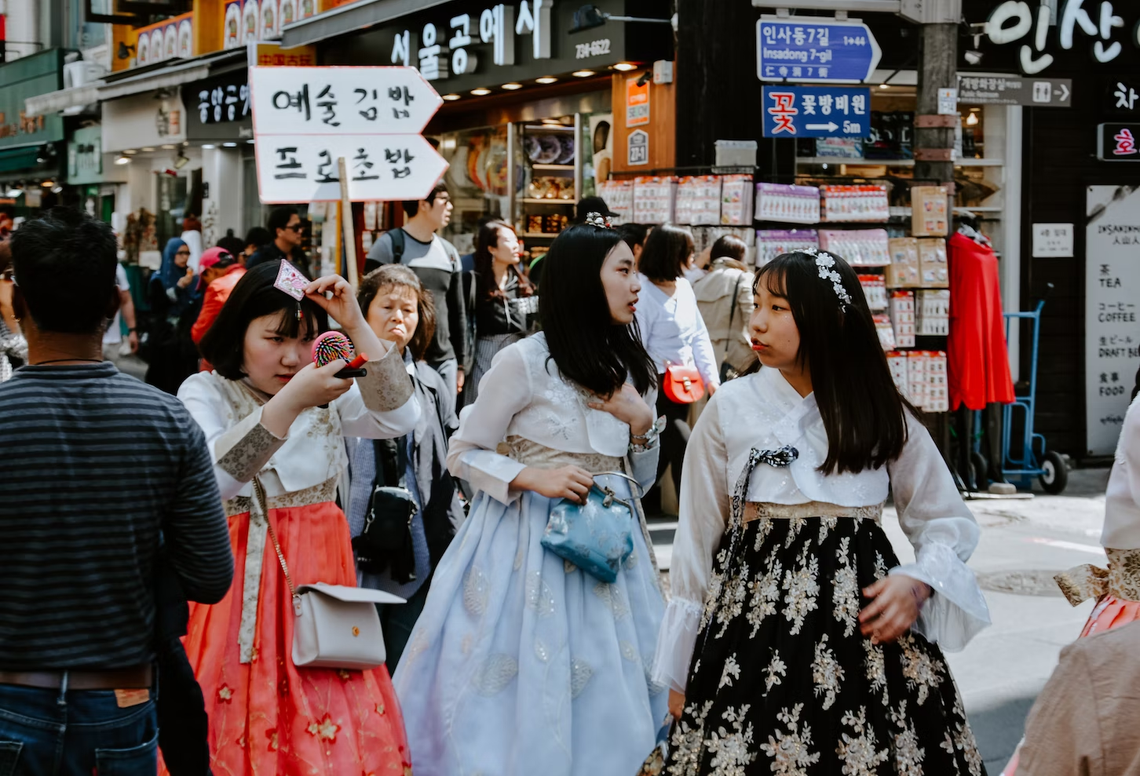
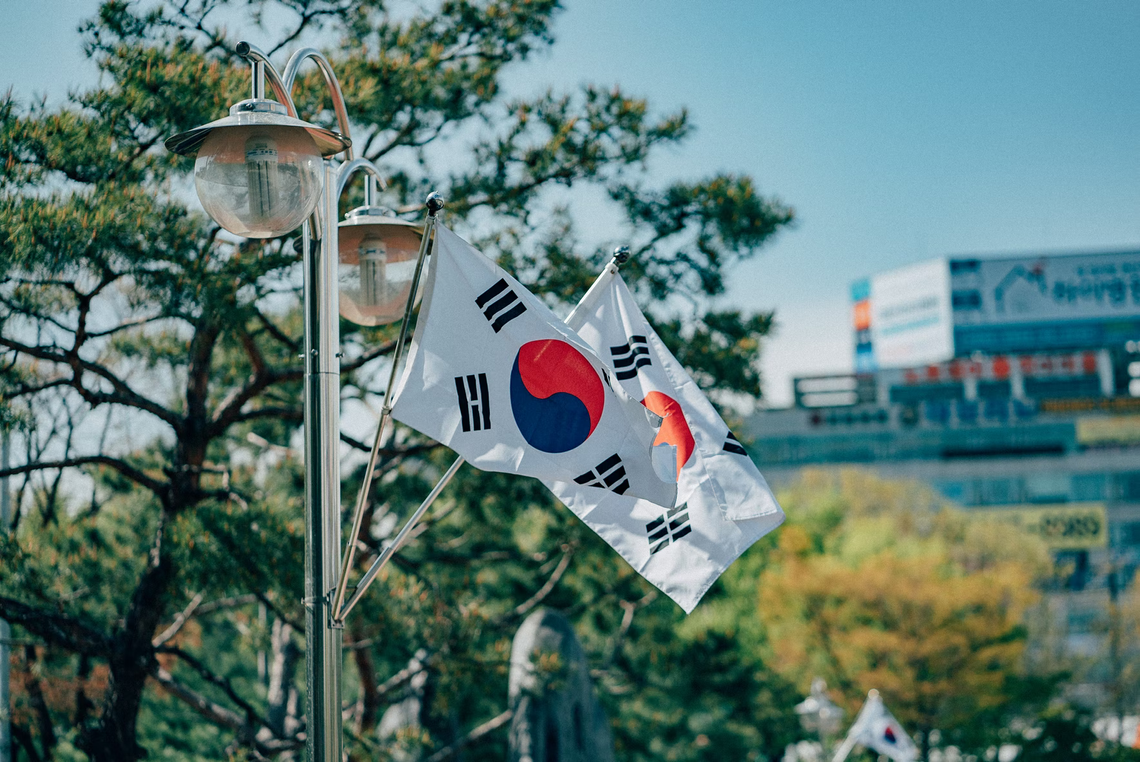

In South Korea, only elementary and junior high schools (grades 1–9) are compulsory, but more than 98% of Korean students prefer to complete secondary education (12 grades) in order to be able to go to university.
| Education Level | Title in Korean | Grades | Age |
|---|---|---|---|
| Preschool education | 유치원 교육 | - | 0-6 (1-7) |
| Elementary school | 초등학교 | 1-6 | 6-12 (7-13) |
| Junior high school | 중학교 | 7-9 | 12-15 (13-16) |
| High school | 고등학교 | 10-12 | 15 -18 (16-19) |
Students are taught according to the curriculum adopted at the state level, which gets updated every 10 years. The latest version was adopted in 2015. During the first two years at the elementary school students learn Korean, mathematics, ethics, physical education and a number of special subjects that contribute to the social development of students (Disciplined Life, Sensible Life, Enjoyable Life, We Are First Graders). Starting from the 3rd year of study, English, social studies, exact sciences, music, art and other general subjects are added, which are preserved throughout the training.
High school in Korea is represented by the following institutions:
Secondary education in Korea is accompanied by heavy workloads: students attend additional private classes and engage in independent work, spending a total of 16 hours a day studying. This helps students achieve good results, but often negatively affects their psychological and physical health. Such trends occurred due to the fact that since childhood, students strive to enter the country's top universities in the hope of securing a bright future with prestigious jobs and high earnings.
Secondary education is done by both public and private educational institutions. In South Korea, both receive funding from the state, although the amount given to private schools is less than the amount given to public schools.
For foreign students, there are international schools that implement programs taught in English based on the American and British standards. The average cost of studying at an international school is 12,608 USD/year. Foreign students have the right to attend ordinary Korean schools, however, the fact that they teach exclusively in Korean must be taken into consideration.
Education in South Korea is 9th in the QS ranking of the best education systems in the world, surpassing many developed countries, such as Japan, Italy, Spain, Switzerland, Sweden and New Zealand[1]. In practice, this entails high-quality education, the development of which is facilitated in many respects by the introduction of advanced technologies, the low cost of training, and the strong chances of employment in promising sectors. Here, the rich eastern culture of Korea with its traditional hierarchy of society coexists with the multicultural environment, and the progressive development of the country in the field of economics and education.
| Type of Education | Age | Duration | Min cost | Avg. The cost | Exams |
|---|---|---|---|---|---|
| Summer Camp | 7-18 | 1-12 weeks | 210 USD/week | 630 USD/week | - |
| Language courses | 16+ | 1-24 weeks | 105 USD/week | 151 USD/wk | - |
| Secondary education | 12-18 | 6 years | Free (public school) | 12,608 USD/year (international school) | - |
| College | 18+ | 2-3 years | 2,802 USD/year | 6,304 USD/year | IELTS 5.5/TOPIK Level 3 |
| Bachelor’s | 18+ | 4-6 years | 4,903 USD/year | 10,157 USD/year | IELTS 5.5/TOPIK Level 3 |
| Master’s | 21 + | 2 years | 3,923 USD/year | 12,608 USD/year | IELTS 6.0/TOPIK Level 3 |
| Doctoral | 21+ | 3-4 years | 3,642 USD/year | 13,659 USD/year | IELTS 6.0/TOPIK Level 3 |
| Expenses | Average cost |
|---|---|
| Application to a university | 74 USD |
| Language exam | 28 USD or 210 USD |
| Flight | 329 USD |
| Accommodation (student residence) | 140 USD/month |
| Accommodation (rental housing) | 1,751 USD/month |
| Accommodation (boarding house) | 350 USD/month |
| Learning materials | 490 USD |
| Internet | 22 USD/month |
| Transport | 42 USD/month |
| Food | 247 USD/month |
| Medical insurance | 15 USD/month |
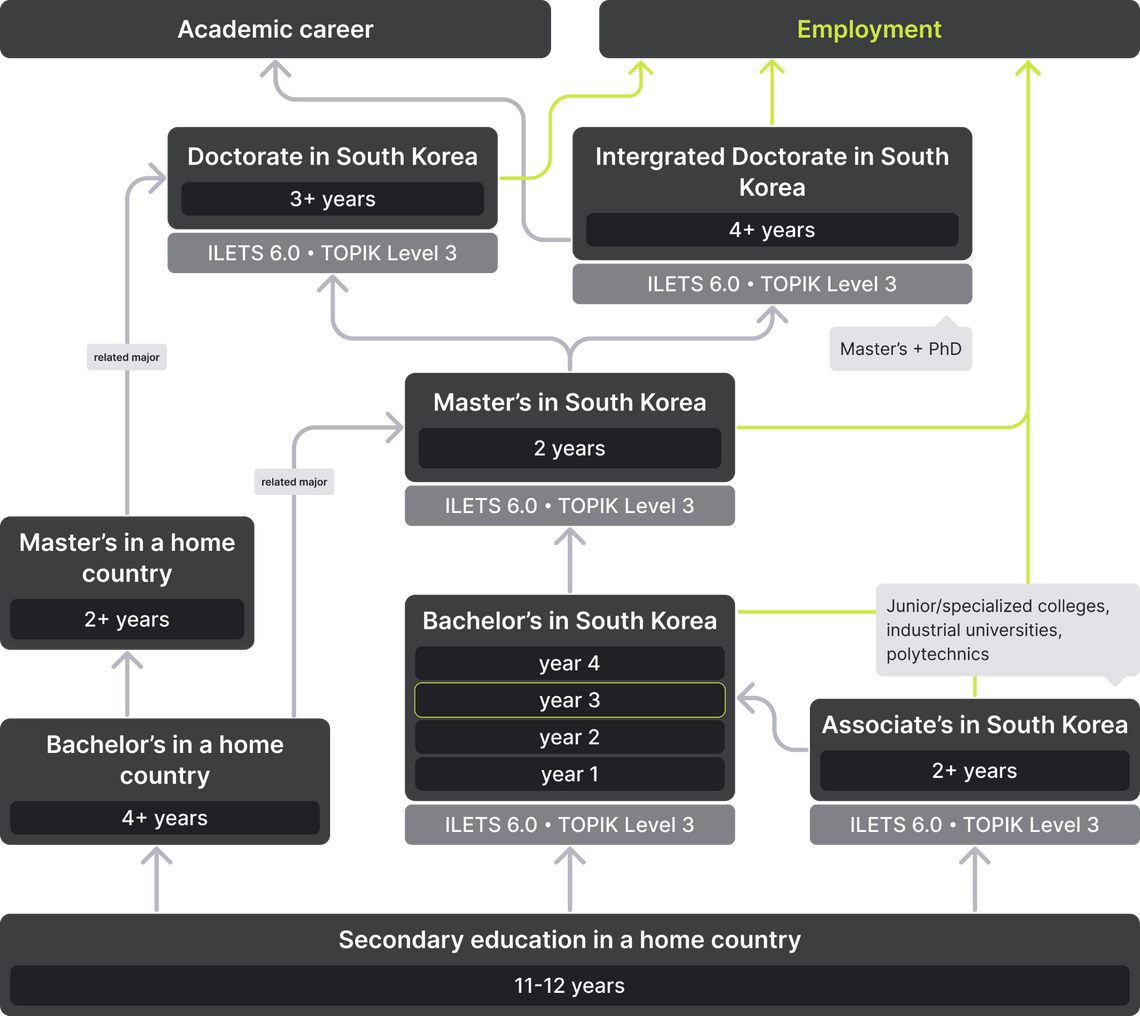

Applications are accepted directly by each individual university, applicants can send documents by mail and/or upload them online. The academic year in Korea begins in March, although many universities enroll students twice a year — in March and September. Application deadlines are in September-November and May-June. Exact dates should be checked on university sites. Education is divided into two semesters with a break in between them: summer break (July-August) and winter break (December-February).
Knowledge of Korean might be an advantage for an applicant or affect scholarship, however, it is not a prerequisite for admission. About 30% of programs in South Korea are taught in English. When submitting documents, international students must confirm the level of language proficiency in which the training will be conducted by providing the results of the corresponding exam: English — TOEFL or IELTS, Korean — TOPIK (Test of Proficiency in Korean).
TOPIK exam can be taken in more than 82 countries. The exam is held 6 times a year (January, March, April, July, October, November). Specific dates are published on the exam site at the beginning of the year. The exam costs 28 USD to take. Korean language levels are divided into elementary (1-2) and advanced (3-6). Upon admission, level 3 or higher is required. In order to graduate from a university, a student will need to demonstrate at least level 4.
For programs taught in English, the requirement for the level of proficiency at all stages of instruction is at least TOEFL 80 / IELTS 6.0, and less often IELTS 5.5 (for undergraduate studies).
The final list of documents (for all programs) may include:
All documents will require translations into the language of study (English or Korean). In the absence of valid passports of the student and/or his parents, it is necessary to provide copies and originals of other documents indicating nationality. Depending on the university and the field of study, additional entrance examinations and interviews are possible. If desired, the student can take the standardized Korean exam Suneung (수능) — an analog of the American SAT. The results can increase the chances of admission, especially in top universities in Korea — SKY.
The negative perception and stigmatization of technical and other applied education unfairly undermine the reputation of vocational schools in South Korea, although they are a good option for those who do not want to follow the traditional university route.
Vocational education is conducted by several types of educational institutions. First of all, it is worth mentioning junior colleges (also specialized colleges, polytechnic colleges), offering two-year (75-80 credits) and three-year (120 or more credits) courses awarding associate's degree (준 문학사 — Junmunhaksa) upon graduation. The main areas of study include various crafts, as well as an extensive block of specialties related to preschool education, economics, business administration, technology, engineering, agriculture, fishing, navigation, and nursing. The curriculum usually includes up to 30% of general subjects in addition to core subjects. Great emphasis is placed on internships.
The requirements for college admission are the same as for university admissions, but the competition is much smaller. After graduating from a junior college, graduates can start working in their specialty or transfer earned credits and go straight to the 3rd year of bachelor’s as part of partnership agreements between colleges and universities (similar to what students of community colleges in the USA do).
An associate's degree can also be obtained at industrial universities (polytechnics), but the cost of studying there will be higher in accordance with the status of the university.

Bachelor’s (학사 - Haksa) in Korea develops key skills and trains important theoretical knowledge, which is necessary to work or continue education. Bachelor’s degrees are issued by four-year colleges and universities, including general research universities, specialized industrial universities and universities of education, and remote cyber universities.
Standard academic programs last for 4 years (130-140 credits), at the same time professional programs (architecture, law, medicine, pharmaceutical business) take 5-6 years. During the first two years, students have core and elective subjects of a general profile, then focus on special disciplines, which are also divided into compulsory and optional.
In order to successfully complete the program, it is necessary to write a thesis, finish a project, or pass a comprehensive examination. In addition, requirements are set for the final GPA, which should be at least 2.00 (C). Universities in South Korea issue both standard degrees of Bachelor of Arts or Bachelor of Science and many specialized ones: Bachelor of Economics, Bachelor of Information Science, Bachelor of Statistics and others.
The main requirement for foreign applicants is the equivalent of 12 years of study in a Korean school. Completed secondary education of 11 years may be also considered equivalent if that is its standard duration in a student’s home country.
| Letter grade | Grade point | Percentage |
|---|---|---|
| A + | 4.5 | 95-100% |
| A | 4.0 | 90-95% |
| B + | 3.5 | 85-90% |
| B | 3.0 | 80-85% |
| C + | 2.5 | 75-80% |
| C | 2.0 | 70-75% |
| D + | 1.5 | 65- 70% |
| D | 1.0 | 60-65% |
| F | 0.0 | <60% |
Grading varies from university to university. Some universities use a three-tier rating structure, for example, A + (4.3), A0 (4.0), A- (3.7), and so on.
Master’s (석사 — Seoksa) in Korea is awarded by graduate schools, which combine master's and doctoral programs. Moreover, on the basis of a university, there may exist one general grad school of an academic orientation or several professional schools with a practical inclination.
The duration of study for a master’s degree in Korea is 2 years. The curriculum involves the study of a specific set of courses, with an aggregate credit score of 24 credits (approximately 48 ECTS), and a master's research. To obtain a master's degree (MA, MS and others), a student must have a final GPA of 3.0 (B) or higher, pass a comprehensive exam and a foreign language exam, and also defend a thesis. Thus, the master's program in South Korea sets a fairly high standard, providing its graduates with a wide range of competencies.
Master’s applicants must complete a bachelor's degree in a relevant field with an average score of 3.0 (B) or higher.

Doctoral studies (박사 - Baksa) is the last stage of higher education in Korea. It is conducted by graduate schools, most of which are part of universities, although they may exist as separate educational institutions.
In Korean universities, there are two ways to obtain a doctoral degree:
For successful completion of the program, the student must secure a final GPA of 3.0 (B) or higher, pass a comprehensive exam and two foreign languages, and then write and defend a doctoral dissertation. The most common qualification in South Korea is Doctor of Philosophy (PhD), but there is also Doctor of Science, Doctor of Business Administration and others.
Upon admission to doctoral studies, the GPA at the previous stage of education (at least 3.0), published papers, research proposal, resume, and also the knowledge of foreign languages (depending on the program, this can be Japanese, English, Korean, French, etc.), all are taken into account.
An academic career in South Korea, like the entire education system as a whole, is built on the model of the United States of America. Therefore, here you can find the same positions. For example, full-time positions:
There are also temporary positions:
A doctorate can be an advantage in building a further academic career at the same university where it was obtained.
The average salary of a professor is 3 million KRW/month.[3]
The most famous government grant is the Global Korea Scholarship (GKS). It fully covers the expenses of students for travel, accommodation, training, medical insurance, training materials, and other needs. The program also includes one-year language courses before starting the main program. Each year, scholarships are given to 170 students of undergraduate level (bachelor's, associate's) and 700 students of graduate level (master's, doctoral).
The main selection criteria are age (up to 25 and 40, respectively) and GPA at the previous stage of education (more than 75% for admission to associate's and more than 80% for other programs). Applications for GKS are accepted by Korean embassies in participating countries and universities accredited by the National Institute for International Education.
There is also a scholarship program for self-financed undergraduate students. Full-time students who have studied at a Korean college or university for at least two semesters and demonstrate good knowledge of Korean at the minimum of level 4, according to the results of TOPIK[4], can apply. Annually the Korean government selects 200 students who receive the scholarship for 12 months.
Many universities provide foreign applicants who have a high academic performance with a discount of 30-100% of the total tuition cost[5].

Student visas to Korea can be of two types:
To obtain a D-2 visa, the following documents must be prepared:
The latter may take the form of a bank statement (at least 7,861 USD) or a document confirming the availability of a grant/scholarship or external financial support. The above list of documents is not always final. In some cases, additional documents are required.
D-2 visa is initially issued for a period of up to two years, then it is extended. Engineering students can apply for category D-2-7, which allows foreign students to stay in South Korea after graduation in order to find work.
Within 90 days after arrival, the student must visit the regional migration service in order to receive an Alien Registration Card, the cost of which is 7 USD. In addition, you will need to purchase an insurance (15 USD/month) that provides access to all medical facilities in South Korea.
During studies at the universities of South Korea, a foreign student with a D-2 visa can get a part-time job (no more than 20 hours a week) for a semester and full-time during the break. To do this, you must study at the university for at least 6 months (one semester) and obtain the appropriate permission. The student will also be required to provide the employer with a valid student visa and a letter of recommendation from the school.

After graduating from a university and obtaining a degree, a student has a lot of opportunities to stay in South Korea, while changing his visa status[6]. The most common are the following options:
A high level of education in the country is only one of the signs of the exceptional transformation of Korea, which has experienced a rapid economic recovery over the past 70 years. Today, the Korean economy occupies 12th place in the world and 4th place in Asia[7]. The unemployment rate is only 4%[8]. As for foreign citizens, the South Korean government provides significant support to students and graduates of Korean universities, without imposing insurmountable visa restrictions on them. All this creates more than favorable conditions for employment in the country.
The first thing that comes to mind when thinking about Korea is, of course, high technology, which is reflected in the largest industries: automobile manufacturing, chemical industry, electronics, shipbuilding, metallurgy, mobile telecommunications. Many know Korean companies like Samsung, Hyundai, LG Electronics, KPMG, ExxonMobil and others. The most sought after specialists are those with technical and IT skills. However, in the context of globalization, one cannot fail to note another promising area — teaching of foreign languages, mainly English.
In general, with a Korean diploma, getting a job in Korea is much easier than without it, but the competition for jobs here is extremely high. Most likely it will not do without learning the Korean language. At the same time, the degree obtained in South Korea is not inferior to the American or the European one, and therefore opens up broad prospects for employment not only in Korea but also in many countries of the world.
60+ countries
we work with
$1,000,000 saved
by students through scholarships
6,400 offers
our students got